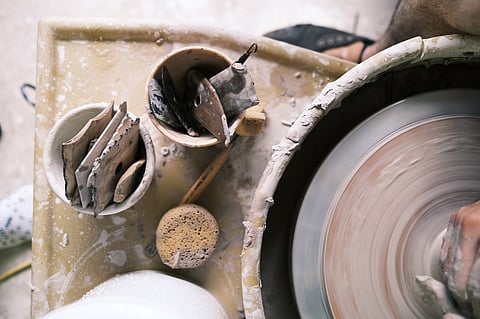Skill-Based Getaways: Merging Travel With Learning in 2025
Travel trends tend to swing like a pendulum every so often, with one year seeing a clamoring for adrenaline-pumping adventure, and the next being all about mindfulness retreats and personal wellness.
In 2025, we see a more refined movement coming to the fore, one that is combining the bucket-list destinations of Yore, with classes and workshops aimed at helping travelers master new skills.
From artisanal cheese-making in the hills of Provence to advanced ceramics courses at luxury lodges in the mountains of Peru, travelers are turning vacations into immersive experiences that promise both indulgence and personal growth.
Such skill-based, learning-oriented getaways, touted for their perfect blend of hands-on learning alongside cultural immersion are starting to take the center stage in global travel and leisure, giving rise to several exciting trends going forward.
The Rise of Purposeful Travel
The appeal of skill-based travel lies primarily in its capacity to enrich getaways with purposeful activities. Rather than solely sipping cocktails by the pool, though there is certainly time for that, participants carve out a few hours each day to learn new techniques from local experts.
Whether it is mastering the art of hand-rolled pasta in a centuries-old Italian villa or discovering the intricacies of woodblock printing under the guidance of Japanese artisans, these retreats craft an environment that seamlessly blends leisure with a sense of accomplishment.
The result is a travel experience that does more than offer sun-kissed photographs, it provides newfound expertise to take back home.
This can also involve something more professional or vocational, such as the Miller-Motte training programs. After all, why not club professional growth with travel and leisure?
Why Purpose Matters
One of the driving factors behind this boom is the recognition that vacation time is precious, and travelers want more than passive relaxation. In an era saturated with social media updates showcasing getaways, some vacationers have shifted focus to substance rather than spectacle.
Enrolling in a gourmet cooking course in Bali, for instance, does not merely guarantee a delightful meal. It also connects participants with local chefs, farmers, and the traditions surrounding each ingredient.
That kind of authenticity adds layers to the typical holiday snapshot. Instead of returning home with a decorative fridge magnet, skill-seekers pack a newfound knack for vibrant curries that can be replicated long after the plane has landed.
Immersive Culture & Authenticity
There is also a growing desire for curated cultural encounters. A skill-based retreat in Kyoto might include explorations of historic temples, delicate tea ceremonies, and lessons in calligraphy.
Meanwhile, wine enthusiasts gather at vineyards in Argentina to learn about sustainable viticulture before swirling and sipping the fruits of their labor, and similarly there are several high-end food tasting events that can be far more enlightening than just eating out.
In these settings, immersive workshops provide more than facts; they invite participants to witness centuries of craftsmanship, appreciate environmental considerations, and respect local traditions that shape each skill.
The typical holiday scenario of observing from a distance has evolved into a participatory dance between travel, culture, and education.
Luxury Meets Learning
Accommodation has kept pace, offering plush amenities that soften the blow of stepping out of one’s comfort zone. Luxury resorts, boutique lodges, and high-end homestays are designing bespoke packages to cater to these growing demands.
A six-day pottery workshop in the Moroccan desert might include a spa day featuring traditional hammam rituals, topped off with candlelit dinners beneath star-strewn skies.
This balance of effort and indulgence appeals to travelers seeking personal enrichment without sacrificing the finer things in life. After all, honing new abilities does not have to mean living out of a rustic bunkhouse.
Technology & The Modern Learning Curve
Technology also plays a subtle yet invaluable role in the evolution of these skill-based getaways. Virtual reality modules, for instance, can introduce beginners to the complexities of glassblowing before the actual workshop begins, minimizing mishaps and optimizing the learning curve.
Smartphone apps help participants keep track of new vocabulary when studying a foreign language. Online portals house interactive transcripts and post-trip refresher lessons, ensuring that the skills acquired will not fade into memory too quickly.
This fusion of analog and digital learning keeps travelers engaged and in touch long after they have left the retreat.
Building Community Connections
The social aspect remains a significant draw. Classes are often designed for small groups, enabling participants to connect with like-minded individuals who share the same passion or curiosity. Lively group discussions unfold over gourmet meals, forging new friendships that transcend borders.
These communal elements imbue the program with an atmosphere of camaraderie, turning the pursuit of new skills into a shared adventure rather than an isolated endeavor.
Many skill-based programs even host digital reunions after the trip, allowing new potters to swap tips for amateur chefs to exchange recipes.
Looking Ahead
Long gone are the days when the biggest souvenir was a tan line. In 2025, travelers depart with a sharpened skill set, deeper cultural appreciation, and a network of new peers.
The memories collected extend beyond scenic vistas, capturing the satisfaction of conquering a challenging craft or cooking technique. It is a trend that speaks to a fundamental human desire: to return home feeling enriched, inspired, and just a bit more capable than before.
Inspired by what you read?
Get more stories like this—plus exclusive guides and resident recommendations—delivered to your inbox. Subscribe to our exclusive newsletter
Resident may include affiliate links or sponsored content in our features. These partnerships support our publication and allow us to continue sharing stories and recommendations with our readers.

